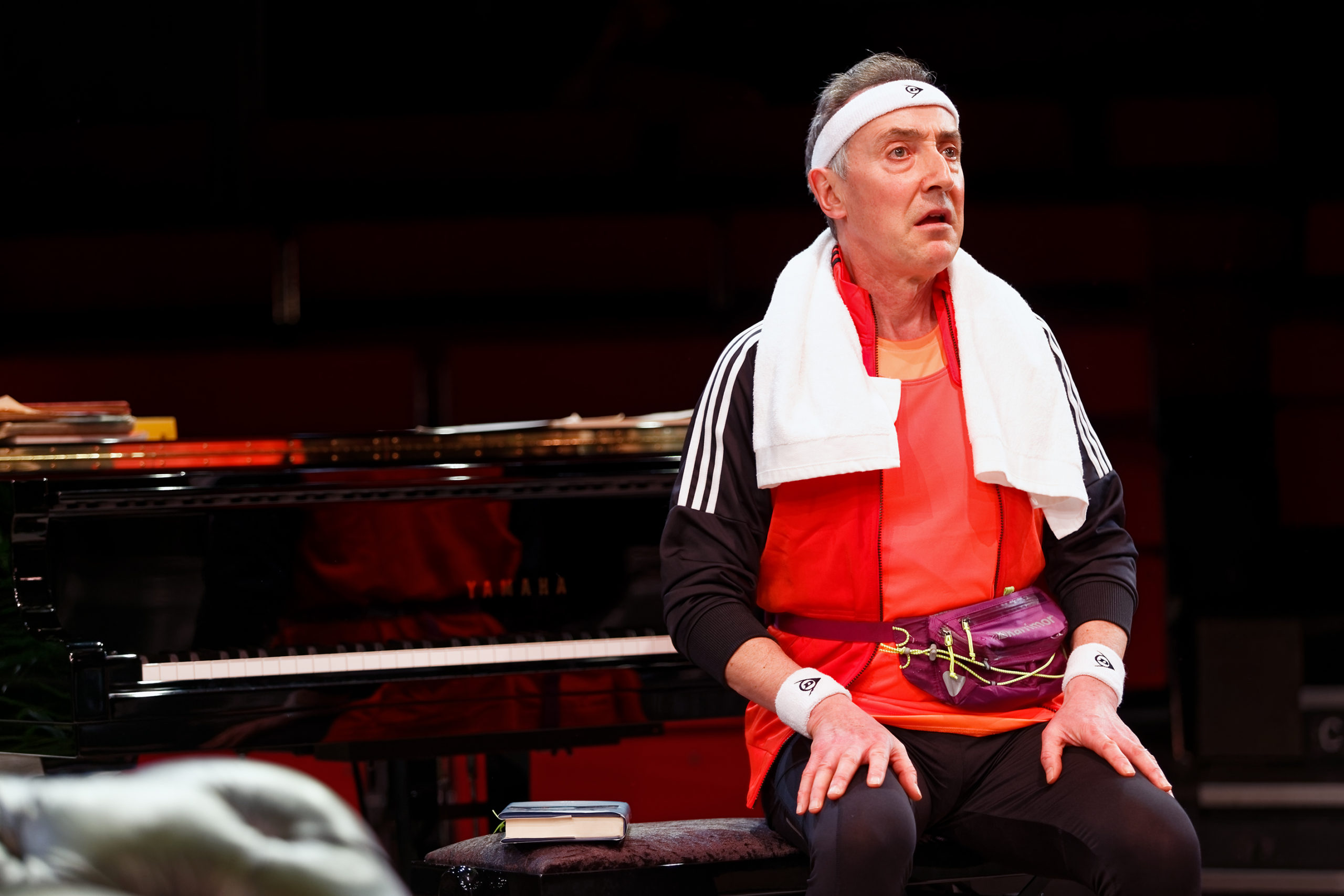
Christopher Bianchi as Charles Ogden
Andrew Hilton and Dominic Power have created a splendid Tartuffe. This is an adaptation that treats Molière’s 17th century comedy with great respect, yet which seems as fresh and immediate as today’s news. This is not merely a line-by-line modern translation; it is a more a kind of ‘faithful transformation’. The original is in rhyming couplets, and this version bravely follows suit, though in such a supple and light-footed fashion that there is no sense of the words being confined by a rigid verse-form. Much of the fun comes from the cheekiness of many of the rhymes – I particularly liked finding ‘pass the parcel’ paired up with ‘metatarsal’, and surely ‘idée fixe’ has never before kept company with ‘Brian Rix’. Those who are familiar with the play will find much to admire in the way that Hilton and Power have closely adhered to Molière’s basic structure and characterisations, while giving every aspect a decidedly contemporary twist.
Tartuffe is a tale of a well-intentioned yet gullible man being deceived and exploited by a hypocritical rogue who feigns extreme piety. Here the victim is Charles Ogden, an aspiring Tory MP who allows himself to become totally dominated by Tartuffe, a kind of New Age guru who heads an organisation called ‘Aspiration UK’. With financial assistance from Charles, Tartuffe has published Our Kid, a book that purports to describe his inspirational journey from childhood trauma to enlightened, self-sacrificing manhood. In it he claims to have made a fortune selling mobile phones in Nepal, and has since used the money to build a number of village schools. All the Ogden family can see what transparent nonsense this is, except for poor Charles and his strong-willed but equally credulous mother, Lady Ogden.
Nobody does benign naivety better than Christopher Bianchi. His Charles is a foolish, pig-headed dupe, yet there is something endearing about the way he repeatedly turns logic on its head in order to put a positive spin on Tartuffe’s appalling behaviour. His family express righteous outrage at this stupidity, but Bianchi never lets us lose sight of Charles’s humanity, so we do not find it surprising that they never quite lose their affection for him.
Mark Meadows takes the title role, and does so admirably. His Tartuffe has a chameleon-like ability to swiftly adapt to each and every circumstance. He is a smooth-talking, oily creep, but Meadows plays him with a lightness of touch that renders his machinations more wickedly amusing than downright repellent. He too can be duped, and when Charles’ wife Emma appears to be offering him her favours, his over-excited response is a wonderful piece of unrestrained physical comedy. Seldom before can a cocktail-shaker have been wielded with such priapic enthusiasm. Saskia Portway is excellent as the exasperated wife who realises desperate measures are needed if her husband is to be made to see sense.
In a production that features strong performances throughout, Anna Elijasz is outstanding as the Ogden’s Polish live-in housekeeper, Danuta. Garrulous, far from deferential, and with a talent for delivering withering insults in gloriously fractured English, Danuta is unforgettable.
In this age of ‘alternative facts’ and fake news, Shakespeare at the Tobacco Factory could not have chosen a more apt play to update than Tartuffe. There are occasional references to specific current issues, such as Brexit and Trump, but it is the play as a whole that has a very relevant message for our times. We do seem to be extraordinarily vulnerable to every mountebank and charlatan with a Twitter account, and this highly entertaining Tartuffe reminds us that a little healthy scepticism would not go amiss. Bravo! ★★★★☆ Mike Whitton 14th April 2017

